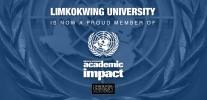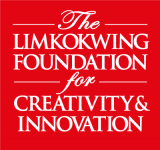Limkokwing University and NAC launch a Technology Based HIV Prevention Programme for Youth (THPPY)
31 January 2022
Limkokwing University in collaboration with National AIDS Commission (NAC) launched the Southern African Development Community (SADC) Technology based HIV Prevention Program for Youth (THPPY) project at the Maseru Club.
Curated under the SADC strategy, this programme’s mandate is to use technology to enhance HIV prevention interventions for young people in the country. Limkokwing University was identified by SADC as an institution that has the capacity to run the mandate in the three Limkokwing Africa campuses namely Botswana, Eswatini and Lesotho in support of the countries’ National AIDS Commission to prevent HIV among the youth aged 15 to 24 years of age and their partners.
Present at the event were The Honorable Minister of Health, delegates from the ministry of education and the ministry of social development, The National AIDS Commission chief executive officer, EGPAF, UNFPA, representatives of the cabinet, local high school students, the media fraternity and Limkokwing students.
The Honourable Minister of Health, Hon. Semano Sekatle mentioned that COVID-19 has cast a distraction on the severity of the HIV/AIDS pandemic. He further stated that it is time to refocus on the health sector as a whole and all other health pandemics that the country is facing so as to re-align itself as a health nation.
“This programme by the Limkokwing University and the National AIDS Commission has been introduced at an opportune time. The most recent pandemic, COVID-19, has taken the spotlight and has distracted us from paying attention to other great health risks such as AIDS, cancer, diabetes, e.t.c. It is therefore time now to refocus on all great health scares we are dealing with as a country because we will not live long if we focus only on covid. Let us also remember that a lot of deaths caused by the pandemic were accelerated by underlying conditions such as diabetes, tuberculosis, AIDS and the likes,” the honourable minister stated.
The University Vice Chancellor, Advocate Tefo Macheli acknowledged that the collaboration between NAC and Limkokwing would be impactful because both institutions are geared at improving the lives of youth in the countries that both institutions exist. Limkokwing will therefore be a technical support structure for NAC in reaching out to the youth because of its advanced approach in communication with the youth.
“To get messages effectively across to the youth, new, adaptive, innovative, and creative means of communication and information dissemination which the youth can easily relate to be utilised.
As a support and technical partner, Limkokwing provides an education ecosystem that targets the youth, prioritising innovation and creativity in delivery – making it a suitable choice to carry out the mandate.” Adv. Macheli said.
The NAC Corporate Service Director, Ms. Mamello Letsie, mentioned that the SADC region remains the epicenter of HIV epidemic with at least 40% of all people living with HIV globally found in the region (specifically in the three collaborating countries amongst the incidences with the highest HIV incidence rates in the region). Therefore, HIV/AIDS interventions remain one of the global priority areas with the overall goal to decrease the number of HIV/AIDS infected and affected individuals.
“SADC has invested considerable effort into these HIV Prevention programs. Titled “Using Technology to enhance HIV Prevention interventions for young people in Botswana, Eswatini and Lesotho” this project has been coined in line with the priorities of the Maseru Declaration on the fight against HIV and AIDS in the SADC Region with a focus on Prevention and Social Mobilization. It is also linked to the Regional Strategy for HIV and AIDS Prevention, Treatment Care and Sexual and Reproductive Health and Rights among Key Populations”, the Mahe Declaration (made by Women Members of Parliament from SADC) in July 2017,” she stated.
\
The project will be implemented within a space of two and half years by the Limkokwing University of Creative Technology throughout its three main campuses of Botswana, Eswatini and Lesotho with oversight from the three Member States’ National AIDS Commissions/Councils (NACs).
Outlining benefits of the project, student services department’s Senior Executive Manager, Mr. Nchapi Moshoeshoe said they included cost effective access, significant HIV reduction, a website with vast information of HIV prevention for the youth, entrepreneurial empowerment, interactive platforms, linkages with care and treatment and improved quality of life.
“Recently, we have all witnessed the world move towards digital migration and becoming technologically based to reflect the digital age we currently live in. We as Limkokwing in collaboration with NAC do not want to be left behind and therefore adopt to new ways of reaching out to the youth through technology. At the end of this project through the empowerment and active participation of the youth, we hope to see a more significant decline in the new HIV infections among the target population and ultimately to see a HIV free generation of young people in 2030,” Mr. Moshoeshoe commented.
The Limkokwing Director of Quality Assurance, Mr. Ntlaloe Ntlaloe, outlined the various way in which Limkokwing university plans on adopting to easily engage the interest of the youth.
“The role of the University is to play innovative, technological and transformed ways to repackage messages/information of HIV and AIDS. This could be achieved by use of games, artwork, documentaries, social media, digital magazines and other new media. We shall also have a youth HIV prevention portal-monitoring and tracking referrals, conduct youth TV/Radio shows on HIV prevention, school visits and village gatherings targeted at both scholars and non-scholars including youth in underage marriage, to mention a few,” he elaborated.



























